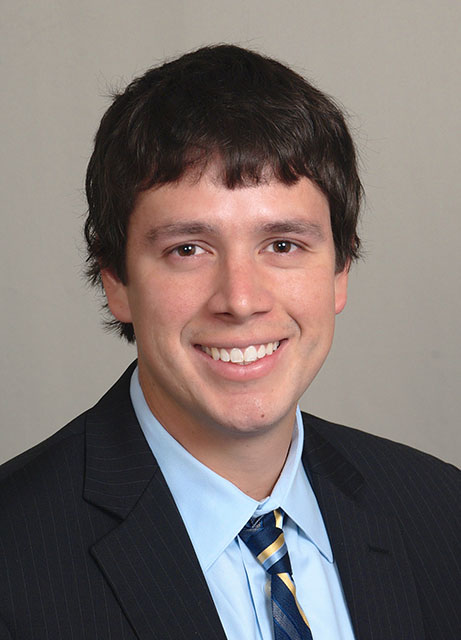March 4, 2021
In support of research that aims to improve the resilience of civil infrastructure during earthquakes and other natural hazard events by developing stronger soils inspired by nature, Civil & Environmental Engineering assistant professor Michael Gomez is the recipient of a National Science Foundation Faculty Early Career Development Program (CAREER) Award. The honor supports early career faculty who have the potential to lead notable advances in research and education.

Assistant professor Michael Gomez
“I am extremely grateful and excited to be able to start this research,” Gomez says. “It has become abundantly clear that as engineers and scientists we can learn something about how nature uses minerals within natural composites to develop new sustainable, resilient and multifunctional materials for civil infrastructure purposes and beyond.”
To develop these new geotechnical ground improvement solutions, Gomez’s research will leverage principles and mechanisms from natural composites found in the shells of mollusks and arthropods, such as crabs. The findings will be used to improve an existing approach called bio-cementation, which uses a biological process to strengthen soils by precipitating calcium carbonate minerals on and between soil particles. Although bio-cementation has been shown to considerably improve soil engineering behaviors for applications including the mitigation of earthquake-induced soil liquefaction, the presence of soil cementation can also result in some unfavorable responses such as increased brittleness when subjected to larger strains.
Unlike the relatively pure minerals currently generated using bio-cementation, marine organisms combine polymers and proteins with stiff inorganic materials to produce composites that have enhanced mechanical properties such as strength, stiffness and fracture toughness, with increased ductility. For example, the inner shell layer of a mollusk has nearly three orders of magnitude greater resistance to cracking from impact loading than pure calcite, the predominant mineral generated using current bio-cementation processes, says Gomez.
“The hope is that these new composites will retain the high strength and stiffness of conventional bio-cementation, but that they will also be much more tolerant of larger deformations,” Gomez says. “These composite materials will aim to do this by incorporating new features to prevent stress concentrations and material fracture propagation, therefore improving their toughness.”
By leveraging both bio-inspired principles and microbiological processes, the research aims to develop new materials which can offer environmentally friendly alternatives to conventional geotechnical ground improvement methods that generally employ either high mechanical energy or energy-intensive materials (e.g. portland cement) to improve soil engineering properties. Such technologies are pervasive in geotechnical practice and not only result in significant greenhouse gas emissions, but can also impact water and soil quality.
The research also includes an education and outreach component aimed at addressing deficiencies in the pipeline of under-represented minority (URM) students toward STEM careers. Gomez’s research group will work with K-12 schools and community colleges across Washington State to increase URM student awareness, recruitment and retention in STEM disciplines.